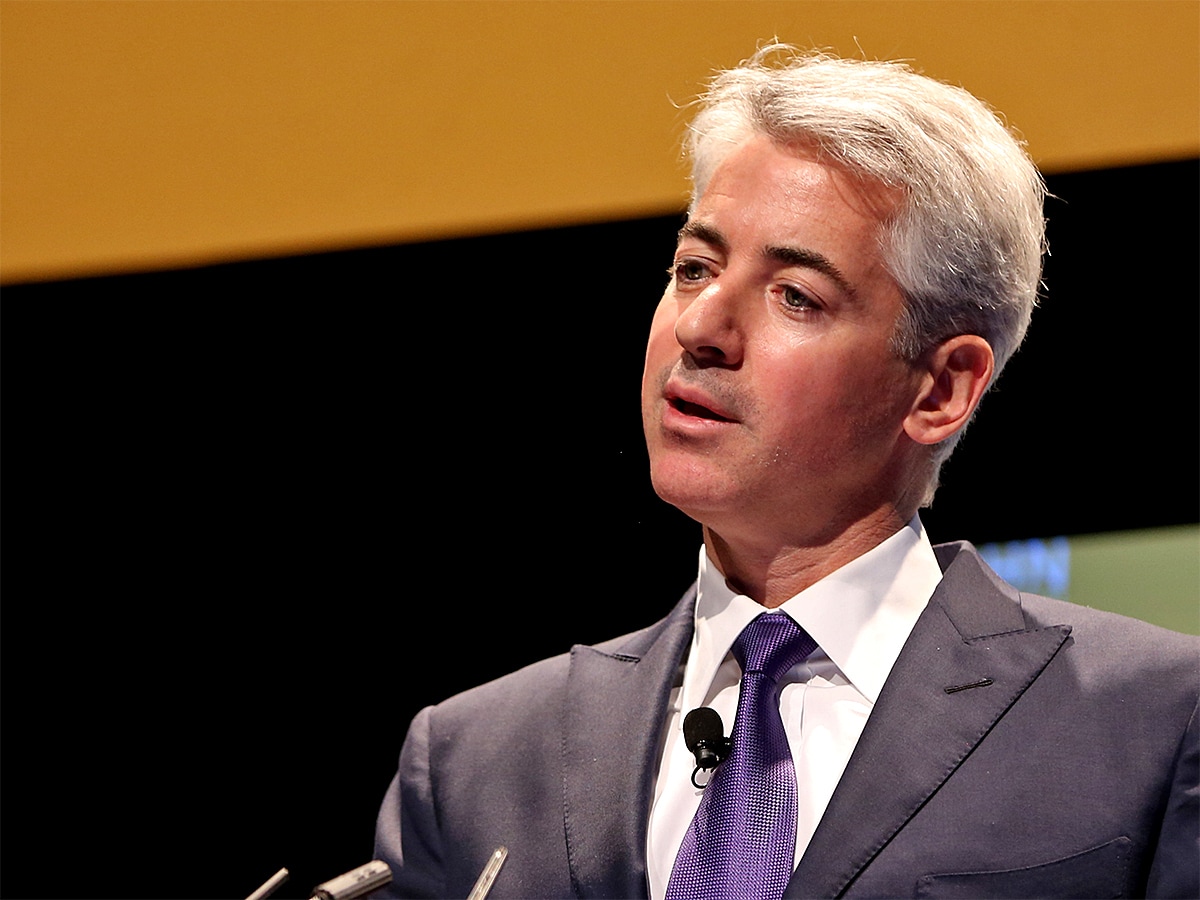Vivendi’s [VIV.PA] share price performance has been flat in the past month. Shares in the French media conglomerate have fallen 0.4% (through 1 July) since announcing that it was in discussions to sell a stake in its biggest business Universal Music Group on 4 June.
Bill Ackman’s (pictured above) special purpose acquisition company (SPAC), Pershing Square Tontine Holdings, will buy 10% of Universal Music Group from Vivendi in a deal valuing the company at €35bn. Vivendi’s share price fell — albeit by just 0.2% — when the deal was officially agreed on 20 June.
Two days later, shareholders of Vivendi voted in favour of its subsidiary distributing shares on the Euronext Amsterdam stock exchange. Universal Music Group is expected to list on the exchange by 15 September.
€35billion
Valuation of Universal Music Group in a deal with Vivendi
The announcement of the spinoff sent Vivendi’s share price up — albeit by just 0.2% to €28.32 on 22 June. Shares in the French media conglomerate have climbed 10.3% in the year to date (through 1 July).
Universal Music Group is the world’s largest music company, with artists ranging from The Beatles and Nirvana to Ariana Grande and Taylor Swift on its books.
Music business
An overall majority of 99.9% of Vivendi shareholders backed the spinoff plan, which would see them distribute 60% of Universal Music Group shares. However, activists Bluebell Capital Partners and Artisan Partners have pressured to reject the scheme, according to Bloomberg.
The proposal includes a 50% buyback, which Bluebell believes would give controlling shareholder Vincent Bolloré a chance to consolidate his position in Vivendi. Bolloré’s firm owns just under 30% of Vivendi. While his holding company denied rumours of a power grab, it has also asked the French market regulator not to exempt it from making a takeover bid if its stake passes over the 30% mark.
Denis Branche, managing director of Phitrust, a French investment firm with a history of lobbying over matters of corporate governance, said Bolloré may expect Vivendi’s share price to fall, allowing him to buy out other shareholders at a discount.
Bluebell and Artisan are also reportedly concerned about the tax implications of the scheme, which they feel will land shareholders with a hefty tax bill.
With Pershing Square Tontine Holdings having acquired 10% of Universal Music Group, the new agreement will see 60% of Universal’s shares distributed to Vivendi shareholders, with Vivendi itself, and Chinese tech platform Tencent, owning the remaining 10% and 20% stakes, respectively.
$171billion
Amount raised by IPOs in 2021 as of 16 June
Listing records
Following a record-breaking year in 2020, the IPO market has accelerated further still in 2021. Last year saw 480 IPOs, according to data by Stock Analysis. Meanwhile, the first half of 2021 has already seen 589 listings. As of 16 June, Markets Insider reported that $171bn had been raised by IPOs so far this year.
While non-US companies (such as South Korean e-commerce platform Coupang) have provided some of the largest IPOs of 2021 to date, they have typically listed on US exchanges. Universal Music Group’s listing could, therefore, be one of 2021’s largest non-US listings. The performance of companies that have listed in the US over the past two years currently outstrips that of global IPOs. This is neatly demonstrated by the performance of two indicative ETFs in the year-to-date and over the past two years.
The Renaissance IPO ETF [IPO] tracks the Renaissance IPO Index, which reflects roughly 80% of companies that have listed in the US over the past year, while the Renaissance International IPO ETF [IPOS] is based on the Renaissance International IPO Index, which does the same on a global basis.
Renaissance’s International IPO ETF fell 1.4% in the first half of 2021. Meanwhile, the Renaissance IPO ETF gained 2.6% in the same period, indicating that so far in 2021 companies that have listed in the US have performed better than those that listed in other countries. Over the past two years, the Renaissance IPO ETF has gained 110.3%, while its international peer has grown 67.1%, indicating that this is a sustained effect.
Disclaimer Past performance is not a reliable indicator of future results.
CMC Markets is an execution-only service provider. The material (whether or not it states any opinions) is for general information purposes only, and does not take into account your personal circumstances or objectives. Nothing in this material is (or should be considered to be) financial, investment or other advice on which reliance should be placed. No opinion given in the material constitutes a recommendation by CMC Markets or the author that any particular investment, security, transaction or investment strategy is suitable for any specific person.
The material has not been prepared in accordance with legal requirements designed to promote the independence of investment research. Although we are not specifically prevented from dealing before providing this material, we do not seek to take advantage of the material prior to its dissemination.
CMC Markets does not endorse or offer opinion on the trading strategies used by the author. Their trading strategies do not guarantee any return and CMC Markets shall not be held responsible for any loss that you may incur, either directly or indirectly, arising from any investment based on any information contained herein.
*Tax treatment depends on individual circumstances and can change or may differ in a jurisdiction other than the UK.
Continue reading for FREE
- Includes free newsletter updates, unsubscribe anytime. Privacy policy





